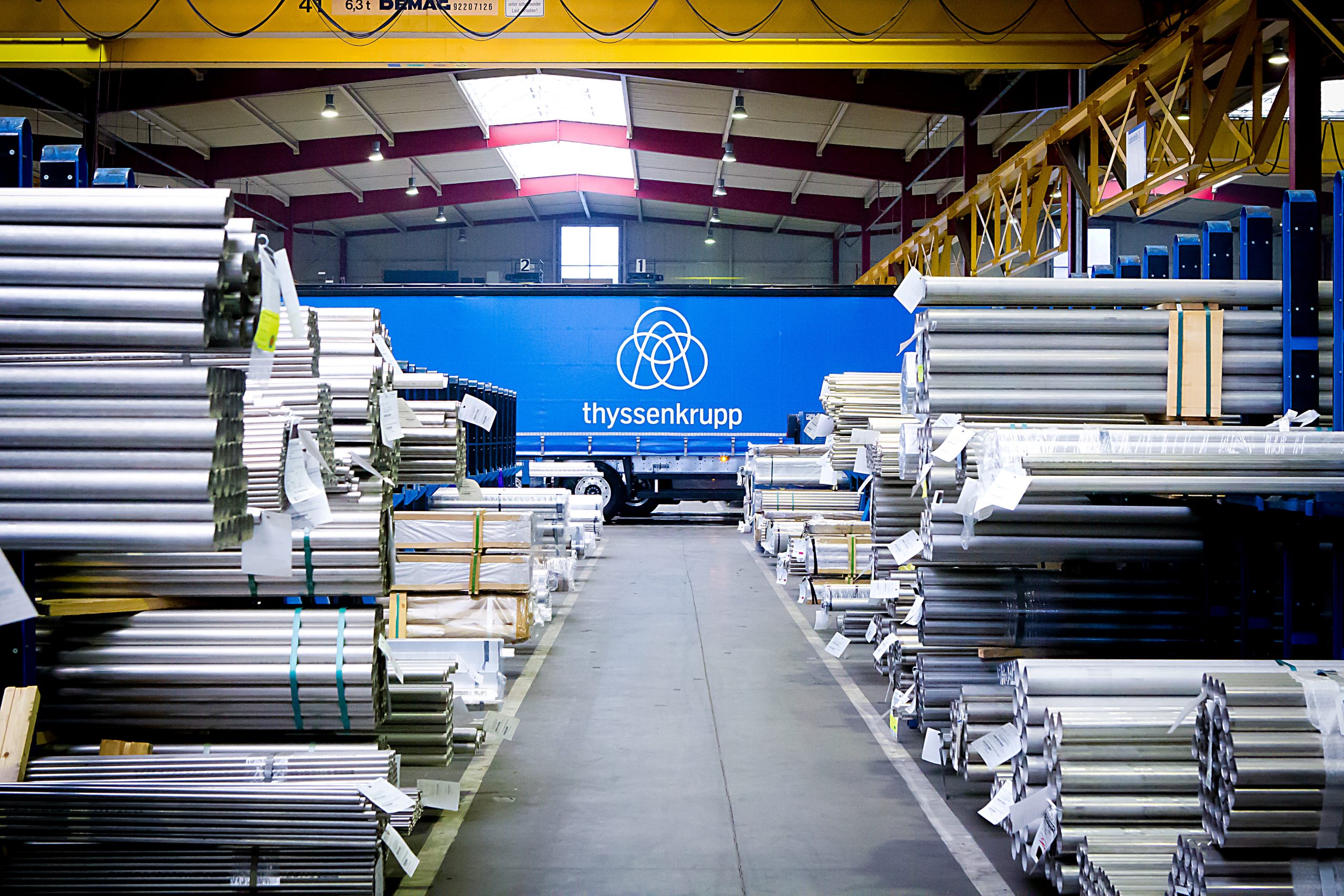ThyssenKrupp’s steel business and raw materials supplier Lhoist Group said Sept. 7 the use of a new lower-carbon “climate-neutral” lime product will help decarbonize steel production.
Thyssenkrupp Steel will use Lhoist’s “LEVEL|BLUE” lime products, which include use of investments into climate projects for benchmarking, and which will reduce carbon dioxide emissions in the steel producer’s supply chain, compared with previous lime supplies, a statement from the two companies said. Lime is a key raw material used to remove undesirable elements from the hot metal, and promote the formation of slag.
Steel and mining companies are bringing low-carbon raw materials supplies and transportation increasingly to the forefront for long-term planning, as steel companies set carbon reduction goals and look to invest in new processes. Iron ore and coking coal miners are adapting fuels and processes to cut emissions to meet demand for high-grade products requiring less energy to convert into finished steel, as well as focusing on environmental, social and governance (ESG) standards.
“We are right in the middle of the transformation to climate-neutral steel production”, said Jens Geimer, Thyssenkrupp Steel’s head of procurement & supply management, in the statement. “Our approach here is comprehensive: Aside from decarbonizing our own units, we also want to make our supply chains gradually climate-neutral by 2050. To this end, we are closely working with our suppliers.”
A large part of CO2 emissions are avoided or reduced in the LEVEL|BLUE lime product, and excess carbon emissions are offset, Alexia Spieler, head of sales at Lhoist Germany, said in the statement.
Platts publishes a range of prices for the global voluntary carbon market, including CORSIA-eligible credits, and Platts Nature-Based Avoidance and nature-based removal credits.
“Complete compensation of the other CO2 emissions arising from the production and transport of our products is achieved by investing in worldwide climate protection projects,” Spieler said. “Thyssenkrupp Steel is thus provided with a climate-neutral raw material, thereby improving its own carbon footprint.”
Thyssenkrupp Steel has set itself the goal to become climate-neutral by 2050, and for emissions from the company’s own production processes and purchased energy to be reduced by 30%, by 2030, it said. The company’s goal to cut Scope-3 emissions in the upstream and downstream value chains is 16%, it said.
Belgium-based Lhoist Group’s new limestone product is certified according to the Greenhouse Gas Protocol (GHG), and the company uses state-of-the-art processes for quarrying, production and recultivation technology, it said.
Limestone products are used in steel and iron production, the chemical industry, the construction industry, water and wastewater treatment, as well as in agriculture & forestry, it said.
— Hector Forster






